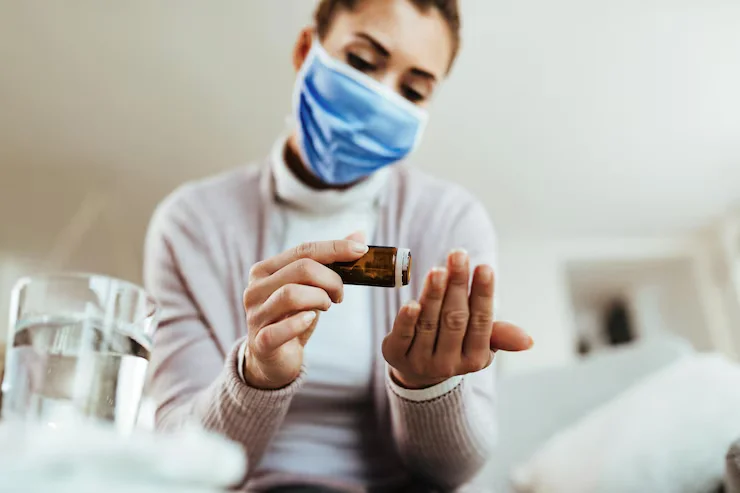Drug testing technology has evolved significantly over the years, shifting from the traditional methods of urine and blood testing to more sophisticated and less invasive techniques. One such advancement is the police saliva drug test, which has become an increasingly common tool for law enforcement when monitoring drug use and impairment, especially on the roads. This article delves into how police saliva drug testing is reshaping the landscape of saliva drug tests screening.
Non-Invasive Nature of Saliva Drug Tests
In contrast to the more intrusive blood tests, saliva drug tests offer a non-invasive alternative for detecting the presence of drugs in a person’s system. This method is widely appreciated for its ease of administration and the minimal discomfort it causes subjects. As drug control becomes a critical aspect of public safety, police departments are adopting saliva-based screening to conduct tests quickly and efficiently, without the need for specialised medical personnel.
The Science Behind Saliva Drug Tests
Saliva testing, scientifically referred to as oral fluid testing, detects the presence of drug metabolites within the saliva. These metabolites are indicative of substance use, as they are produced when the body processes the active compounds found in drugs. Since saliva production is a natural bodily function, the metrics obtained are reliable for identifying recent drug use. Furthermore, as drugs can enter the saliva through bloodstream transference and direct deposition from the oral cavity, this testing method can provide swift results.
Detection Windows and Substance Identification
The sensitivity of police saliva drug tests is such that they can detect a range of substances with varying detection windows. Depending on the drug, metabolites can be identified in saliva for a period after the last drug ingestion. Typically, saliva tests can detect use within a few hours up to a couple of days, which is an optimal window for law enforcement when assessing recent drug use.
Advancement in Technology and Ease of Use
With enhancements in technology, modern saliva drug tests are designed to be user-friendly, considerably simplifying the screening process. Police officers can perform the test using simple kits that usually involve placing a swab in the mouth of the individual being tested. This ease of use not only expedites the testing procedure but also minimises the chance of errors in sample collection.
Instant Results and On-site Screening
One of the key advantages of police saliva drug tests is the ability to obtain instant results. Unlike traditional methods that require laboratory analysis, saliva tests can yield an immediate indication of drug use. This ensures that on-site screening is actionable, allowing officers to make swift decisions regarding an individual’s drug impairment and mitigate potential risks associated with delayed results.
Application in DUI and Roadside Testing
Road safety is a primary concern for law enforcement agencies worldwide. In the context of preventing drug-impaired driving, police saliva drug tests have proven to be an invaluable asset. By utilising these tests in roadside checks, police can effectively screen drivers for drug use, thus helping to reduce the number of drug-related accidents and reinforcing public safety measures.
Legal Implications and Test Validity
The adoption of saliva drug tests does not come without legal considerations. Jurisdictions are tasked with ensuring that the use of such tests aligns with legal standards and privacy rights. Questions of test validity and the ability to use the results as evidence in court cases necessitate ongoing research and standardisation of testing protocols.
Training and Awareness for Law Enforcement
Implementing a new technology like saliva drug testing in the policing landscape requires comprehensive training and awareness. Officers must be adept at administering the tests and interpreting the results accurately. This training extends beyond the mechanics of the test to understanding the limitations and best practices for its use in the field.
The Future Landscape of Drug Testing
The continued advancement in saliva drug test technology suggests a future where drug screening becomes even more seamless and integrated. As research progresses, we can anticipate further enhancements in detection times, the range of detectable substances, and accuracy. Consequently, the potential for broader application, such as in workplace drug testing, is vast.
Integrating with Other Drug Testing Methods
While saliva drug testing is a powerful tool, it is important to note that it is often used in conjunction with other methods. Cross-verification with blood or urine tests might still be necessary to confirm results, especially in cases that lead to legal consequences. By integrating various testing methods, a comprehensive approach to drug screening is achieved.
Challenges and Ethical Considerations
Despite the widespread adoption of saliva drug testing by police, there are challenges that need addressing, such as concerns over privacy, the potential for false positives or negatives, and ensuring equitable testing across different population groups. Ethical considerations also play a role in the use of drug testing technologies, demanding continuous evaluation of practices to maintain ethical standards.
Conclusion
The emergence of the police saliva drug test represents a significant step forward in the field of drug screening. By offering an efficient, less invasive, and immediate method of detecting drug use, saliva tests are revolutionizing how law enforcement agencies respond to drug consumption and impaired driving. As the technology continues to develop, and with careful consideration of the legal and ethical frameworks surrounding its use, saliva drug testing is poised to play an even greater role in the future of public safety and drug policy enforcement.
In conclusion, understanding the intricacies of the police saliva drug test is essential for grasping its potential impact on the future of drug screening. As this technology progresses, it is likely to become a central component in the toolkit of law enforcement, offering a balanced approach to tackling drug-related offences and upholding safety within communities.







